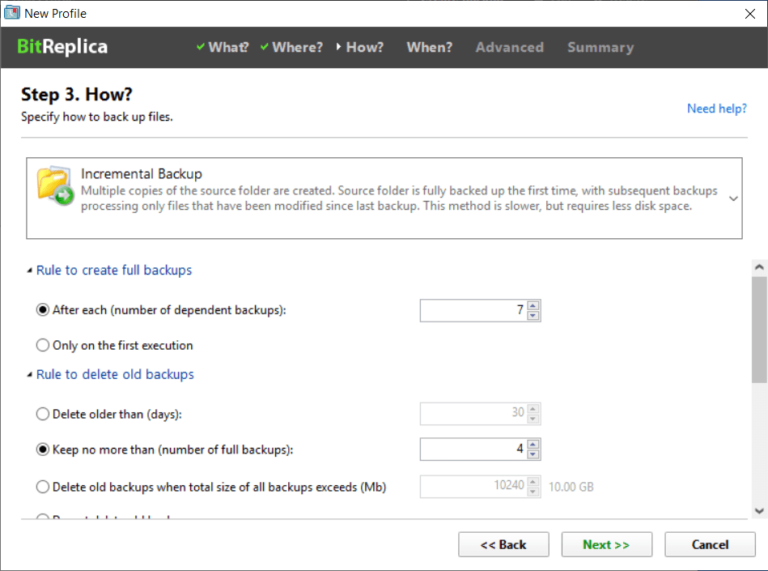
Your data is not just a piece of information. You’ve spent a considerable amount of your time, efforts and money on it. Losing your data means losing a valuable digital asset.
Whether you’re a student, professional or businessman, an accidental loss of information can have disastrous impacts on your life. Data loss can cause severe consequences such as emotional trauma, monetary loss, loss of future opportunities (such as clients), or legal penalties.
Forming a correct backup strategy will help you keep your data protected. There is no one-size-fits approach for everybody. There are situations when one backup method works better than the other. Selecting the right backup method, backup interval, and destination storage is the key to secure your files. Let’s dive in understanding the difference between the popular full, differential and incremental backups.
Difference Between Full, Differential & Incremental Backups
| Backups | Full | Differential | Incremental |
|---|---|---|---|
| Backup 1 (Sunday) | Copies all files to the backup image | Copies all files to the backup image | Copies all files to the backup image |
| Backup 2 (Monday) | Copies all files to the backup image | Copies only changed files since Backup 1 | Copies only changed files since Backup 1 |
| Backup 3 (Tuesday) | Copies all files to the backup image | Copies only changed files since Backup 1 | Copies only changed files since Backup 2 |
| Backup 4 (Wednesday) | Copies all files to the backup image | Copies only changed files since Backup 1 | Copies only changed files since Backup 3 |
| Advantages/ Disadvantages | Takes maximum storage and time | Takes less storage & time than a Full Backup | Takes minimal storage and time |
Full Backup
A full backup is also called as a complete backup. Every time you perform a full backup, it copies all of your files to the backup image regardless of whether they were changed or not.
For example, John takes his first full backup on Sunday. The program backups all of his files to the backup image. John performs the backup on Monday. The program copies all of his files (including those changed and those not changed) to the backup image. John starts the backup again on Tuesday. The program does the same- copies all of his files- regardless of whether they are changed or not.

As you can see from the example, a full backup is space-intensive and time-consuming in nature. It occupies much more storage and takes longer time to backup your files. Typically, full backups are not preferred in normal circumstances. They are to be taken in the initial phase, and after you’ve made significant changes to your data. Minor changes to the data may not require a full backup.
Differential Backup
A differential backup is an evolved form of backups which is both time and storage space-saving.
A differential backup will take a full backup in the beginning. In the subsequent times, it’ll back up only changed/ modified files since the last full backup. As a result, a differential backup is speedy and flexible.
For example, John runs a differential backup for the first time on Sunday. The backup program creates a full backup of his data. John performs the backup again on the next day, Monday. This time, differential backup only copies those files that have been changed since the last full backup on Sunday. John initiates the backup again on Tuesday. Much like Monday, the program backups only those files that have been changed since the full backup on Sunday.

Thus, even though the differential backup is a much better solution than a full backup, it still has some drawbacks. Every time you take a differential backup, it copies the changed information since the last full backup, and not differential backup. If John has added significantly larger files on Monday, the Tuesday and other subsequent backups will suffer from the redundancy. It’ll only add up to John’s storage and valuable time.
Incremental Backup (Recommended)
An incremental backup is much smaller in size and takes lesser time. This is what makes it an ideal backup solution for most users, and we recommend it.
Much like differential backup, an incremental backup only copies changed/ modified files. But unlike differential backup, it backups only what has been changed since the last backup (irrespective of whether it’s a full or incremental backup).
For example, John runs the first incremental backup on Sunday. The program takes a full backup of John’s files. John runs the backup on Monday. The program copies only those files that have been changed since the Sunday’s backup. John initiates the back up on Tuesday. The program copies only those files that have been changed since the last backup on Monday (in contrast to differential backup which backups changed files since last full backup).